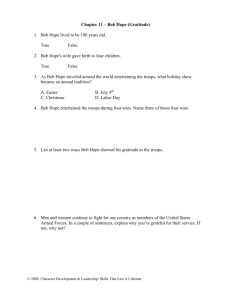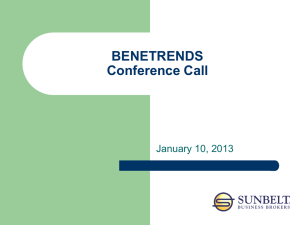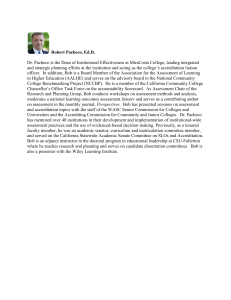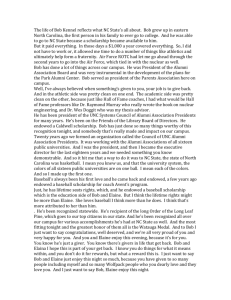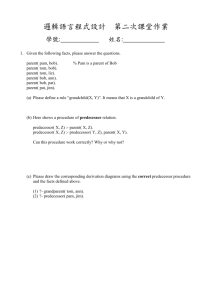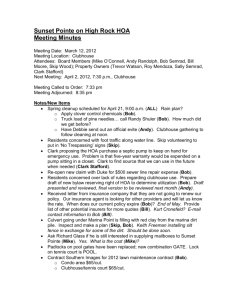MINUTES
advertisement
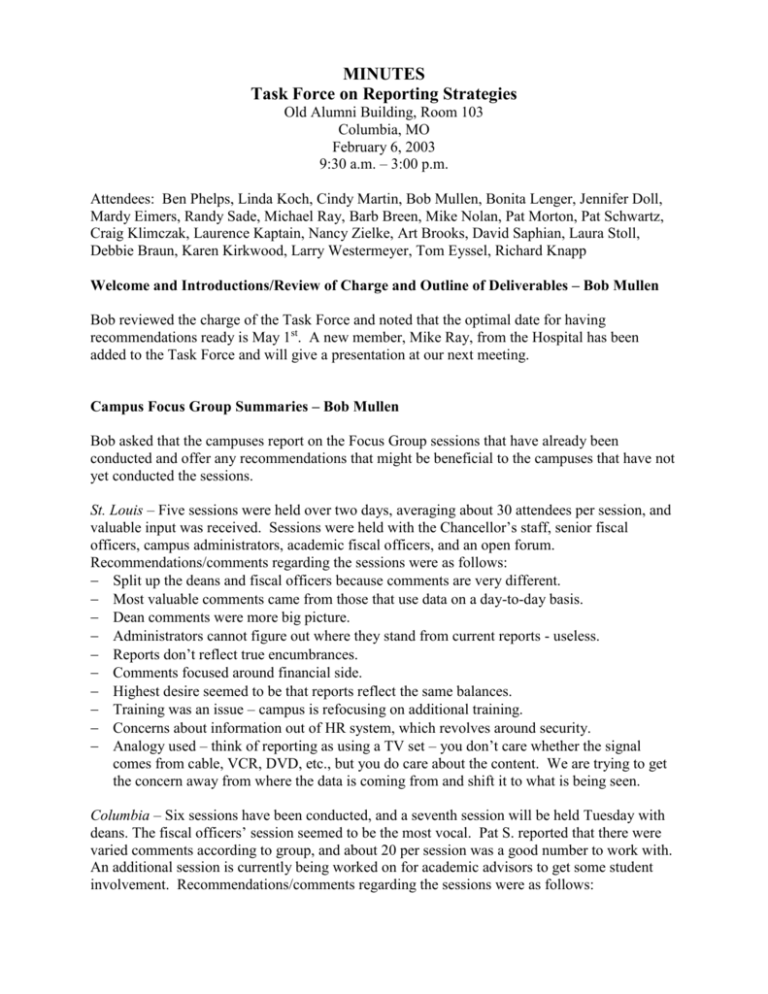
MINUTES Task Force on Reporting Strategies Old Alumni Building, Room 103 Columbia, MO February 6, 2003 9:30 a.m. – 3:00 p.m. Attendees: Ben Phelps, Linda Koch, Cindy Martin, Bob Mullen, Bonita Lenger, Jennifer Doll, Mardy Eimers, Randy Sade, Michael Ray, Barb Breen, Mike Nolan, Pat Morton, Pat Schwartz, Craig Klimczak, Laurence Kaptain, Nancy Zielke, Art Brooks, David Saphian, Laura Stoll, Debbie Braun, Karen Kirkwood, Larry Westermeyer, Tom Eyssel, Richard Knapp Welcome and Introductions/Review of Charge and Outline of Deliverables – Bob Mullen Bob reviewed the charge of the Task Force and noted that the optimal date for having recommendations ready is May 1st. A new member, Mike Ray, from the Hospital has been added to the Task Force and will give a presentation at our next meeting. Campus Focus Group Summaries – Bob Mullen Bob asked that the campuses report on the Focus Group sessions that have already been conducted and offer any recommendations that might be beneficial to the campuses that have not yet conducted the sessions. St. Louis – Five sessions were held over two days, averaging about 30 attendees per session, and valuable input was received. Sessions were held with the Chancellor’s staff, senior fiscal officers, campus administrators, academic fiscal officers, and an open forum. Recommendations/comments regarding the sessions were as follows: Split up the deans and fiscal officers because comments are very different. Most valuable comments came from those that use data on a day-to-day basis. Dean comments were more big picture. Administrators cannot figure out where they stand from current reports - useless. Reports don’t reflect true encumbrances. Comments focused around financial side. Highest desire seemed to be that reports reflect the same balances. Training was an issue – campus is refocusing on additional training. Concerns about information out of HR system, which revolves around security. Analogy used – think of reporting as using a TV set – you don’t care whether the signal comes from cable, VCR, DVD, etc., but you do care about the content. We are trying to get the concern away from where the data is coming from and shift it to what is being seen. Columbia – Six sessions have been conducted, and a seventh session will be held Tuesday with deans. The fiscal officers’ session seemed to be the most vocal. Pat S. reported that there were varied comments according to group, and about 20 per session was a good number to work with. An additional session is currently being worked on for academic advisors to get some student involvement. Recommendations/comments regarding the sessions were as follows: Heard that we can’t expect reporting to be all things to all people as long as we can easily access information that we can trust and download it – that’s what’s important. People want to be able to use that data and add some other things to it that aren’t in the system. Discussion in Provost session was broader than just PeopleSoft. Issue of “why don’t I get the same balance?” Need for training on what data is being used for. Group was interested in ad hoc reporting. Higher the level, the more satisfied they were. Recommendation to review HR and Finance tables that are available to users to get their job done. Sessions were positive as far as informal sharing of information. SIS people like the access to data and being able to download and manipulate it like they want instead of having someone do it for them. Two-hour sessions work well, but could go with 1 ½. After about 1 ½ hours, people run out of gas. Bob reported that his office is working on summaries of the information gathered at the St. Louis and Columbia sessions which will be posted on the web site as soon as they are finalized. The web page can be accessed by a hotlink on the Vice President for Finance & Administration’s web page, which takes you back to the Planning & Budget web page. The web site also includes the charge of the Task Force, the white paper, and minutes from our last meeting (including summary of exercise on Focus Group Questions). Academic Affairs has requested that two additional focus groups be conducted with intercampus groups – one with research officers at their meeting next week, and a second session with the IFC at the end of this month. Other remaining sessions include a session with Outreach & Extension on February 27, Rolla sessions will be held February 24-25, and Kansas City sessions will be held March 3-4. What are some of the “Best Practices” and what are other PeopleSoft customers doing? Presentations were made as follows: Financial Reporting – Jennifer Doll Human Resources Reporting – Linda Koch Student Reporting – Laura Stoll Multi-System Implementation Reporting – Ben Phelps Presentation materials will be out on the web site, hopefully by tomorrow. Review of Presentations Bob asked that everyone take the next three or four minutes and jot down a few ideas heard during the presentations today that should be included in the recommendations. Ideas noted were as follows: Datawarehouse Reporting being external from PeopleSoft Portal for reporting – high level and individual – must be web based Need Data Element dictionary Report directory Data sharing across systems User self-service Need for near real-time data as well as selected census point files Historical data Ability to bring in data from external sources Training (end user driven) Good information Identify training by groups and how to deliver Define reporting needs of entire system vs. individual unique reports – predefined vs ad hoc Timelines of reports Complexity simplified Levels/types of reporting Some need data, some need information Organizing tools, communicating (Michigan layout of tools) Tools matching users Individual reporting web page Web based delivery of report List of reporting priorities Communications Coordinated plan Urgency, third party vendors – resources because of time constraints Provide a vision Reporting to make more efficient/effective Common reporting delivery strategy across applications Simplify obtaining data Common language/definitions Continuous process/quality improvement for reporting Organize IT support User/technical architecture relationship Campus Group Exercise: Identifying Critical Success Factors Due to lack of time, Bob asked that members review the list of critical success factors. Is there anything that needs to be added? How would we measure two or three years down the road if our recommendations were successful? What is the number one measure of success, second, third, and so on? Thoughts should be submitted to Bob within the next week or two to aid in the writing of components for our recommendations. Small groups will be put together to look at each component of the recommendations. Bob will send out an e-mail to clarify what we are looking for in the critical success factors. What have we learned?/What do we need to do next? – Bob Mullen Next meeting will be in March. Mike R. and Ben will do presentations in terms of what’s being implemented, EPM/ODS, and version upgrades. We will also “roll up our sleeves” and refine what needs to be in the recommendations. Pat requested that Art also do a presentation on what Rolla has done to keep operational. ADJOURN
